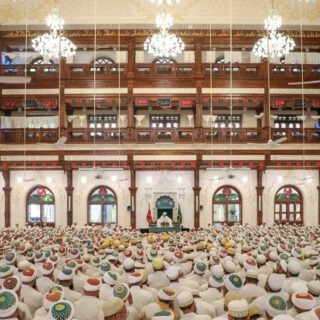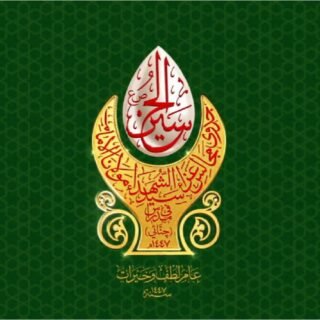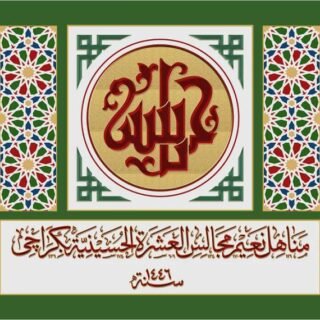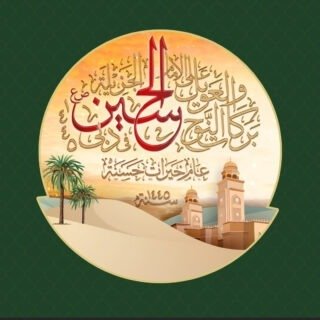In this chapter, Imam Ahmed al-Mastur AS outlines the various aspects that determine the value and importance of a craft. He also makes it clear that the ultimate purpose of attaining proficiency in any craft is to grow closer to Allah Ta´ala. He writes:
My brother, know that crafts differ from one another in their value and importance for a number of reasons. Either due to the raw material used, the form given to it, the need for which it has been produced, the extent to which it benefits the populace and the inherent virtue of the craft itself.
Crafts whose importance derives from a need towards it are three: cultivation, stitching and construction, as mentioned before. Examples of crafts whose importance is derived from the raw material used are that of goldsmiths and perfumers. Likewise, crafts whose value is determined by the form given to the raw materials include the making of instruments and devices used in astronomy such astrolabes and other models of the cosmos and planetary orbits. This is evident in the fact that the value of a piece of bronze is five dirhams, but when an astrolabe is made from it its value rises to a hundred dirhams. This value is not due to the raw material used but because of the form given to it. However, when gold and silver, the raw materials for goldsmiths and coin-makers, are made into dirhams, dinars and other ornaments, the difference between the value of the raw material and that of what is produced from it is not great as that between an astrolabe and the raw material it is made from.
Crafts which are valued for the benefits they bring to the populace include that of those operating bathhouses and street cleaners. Bathhouses benefit the young, the old, the respected, the lowly, the resident, the visitor, the near and the far equally; there is no difference between how each benefits from them. However, when it comes to the majority of crafts there are differences in the extent to which people benefit from them. People differ in the extent to which they benefit from clothes, food, drinks, residences and other similar products; the state of the wealthy is in contrast to the impoverished, except when it comes to crafts such as bathhouses and hair dressers.
When it comes to the craft of street sweepers and garbage disposers, the inconvenience that would be caused were they to cease carrying out their craft would be great and would extend to the entire inhabitants of the city. If perfumers, whose craft is in stark contrast to those of garbage disposers, were to shut shop and cease to trade for a month, the inconvenience caused to residents would not be as much as that caused were garbage men to cease carrying out their craft for even one week. The city would be filled with garbage, manure, decomposing animals, junk, and other such things that would tarnish the lives of its residents.
Crafts whose distinction lies in the craft itself are like those of prestidigitators, painters and musicians. Prestidigitation is nothing more than a sleight of the hand, which apart from amusing the feeble-minded, even surprises the intelligent with their skill and adroitness. The craft of painters involves reproducing natural, manmade or abstract entities, with such precision that their viewers show greater admiration for the painting than for the actual entity. However, the skills of painters vary greatly from one painter to the next. It is narrated that a man created a painting with vivid hues and striking colours. All those who came across it were struck by its beauty and brilliance, even though it had a flaw. One day a skilled painter happened to pass by it. He studied it and then expressed his disdain for it. He picked up a piece of charcoal that was lying around and next to that painting proceeded to draw a man pointing outwards. Instead of viewing the previous painting and all its splendours, people’s attentions were now drawn towards this picture. They began to admire this picture instead: the manner in which it was drawn, the way in which the man was pointing towards them, his appearance and actions.
The craft of music has two distinctions: the first due to the craft itself and the second, because of its impact and influence on souls. Another distinction is due to the variation in skill of those who ply this craft. One musician, when playing a tune may mesmerize some of his listeners, while another has the ability to mesmerise all those who listen to him. It has been narrated that a number of musicians had gathered in the presence of a nobleman. A man in a disorderly state, dressed as an ascetic entered this gathering. The host welcomed him and asked him to sit at the head of the congregation, a gesture which brought evident disapproval to the faces of all present. The host immediately sensed this and sought to make the eminence of his distinguished guests known to them all. He requested him to play something for them. The man removed a few pieces of wood and placed them in an orderly manner. He then placed over them some strings which he had. He then struck these strings in such a way that all those present began to laugh out of pleasure and mirth. He then played a different tune which led everyone in the audience to cry out of grief and compassion. Finally, he switched to another melody that made everyone fall asleep. He then stood up and left, with no one having any idea where he went.
My brother, know that by attaining proficiency and skill in a craft a person emulates and follows the example of the Wise Craftsman: Allah. It is said that the Almighty adores a craftsman who is skilled and proficient. Rasulullah SA states ‘Allah Ta´ala adores a craftsman who is proficient in his craft’. Likewise, it is said that philosophy is but to emulate the Almighty, to the best of human capacity. In this context it means to emulate Allah in knowledge, craft and the doing of good, for He is the most knowledgeable of the knowledgeable, the wisest of the wise, the most skilled of all craftsmen and the most preeminent of the good. Therefore, whoever elevates himself in these four traits will gain further closeness to Him, for Allah has mentioned in praise of firishtah, the purest of his servants, ‘…they seek a waseelah (intermediary) towards their Lord, which of them shall be the nearest; they hope for His mercy…’. Imam AS concludes, ‘Know, my brother, that waseelah is only through deeds, knowledge and ´ibaadat, for servants do not possess anything but their efforts and endeavours, as stated by Allah Ta´ala ‘Man has nothing but that for which he has strived, and that [the fruit of] his perseverance shall soon be seen’.








